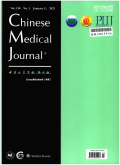摘要Background:In China,the prevalence of allergic rhinitis (AR) and asthma has increased in the past decade.As these two diseases frequently coexist,the Asia-Pacific Survey of Physicians on Asthma and Allergic Rhinitis (ASPAIR) study aimed to assess physicians'beliefs and treatment patterns of coexistent asthma-AR across six Asian countries.This analysis presents the results from China.Methods:The 200 hospital-based general physicians and pediatricians were interviewed from five cities in China.Physicians were questioned in-person about their knowledge,beliefs and management practices for patients with coexistent asthma-AR.Results:Approximately 70% of the physicians interviewed routinely evaluated their patients with asthma or AR for signs of coexistent disease.While the majority of physicians (> 90% of physicians) recognized the increased burden of coexistent asthma-AR vs.one condition alone and that coexistent disease requires additional treatment,most physicians (96%) also believed that patents with coexistent asthma-AR were well managed if either condition alone improved.Similarly,although 71% of physicians selected a combination of intranasal and inhaled corticosteroids as their preferred treatment for coexistent asthma-AR,in line with treatment guidelines,two fifths of physicians indicated that treatment for coexistent disease requires too much medication and that their patients prefer oral medications and a third of physicians believed that corticosteroids should be delayed in children.Conclusions:This survey demonstrates that physicians interviewed in China have a broad understanding of coexistent asthma-AR and its impact on patients.A holistic approach to patient management with informed decisions regarding patients' overall treatmentwill benefit patients who suffer from coexistent disease.
更多相关知识
- 浏览38
- 被引6
- 下载8


相似文献
- 中文期刊
- 外文期刊
- 学位论文
- 会议论文



 换一批
换一批 换一批
换一批



